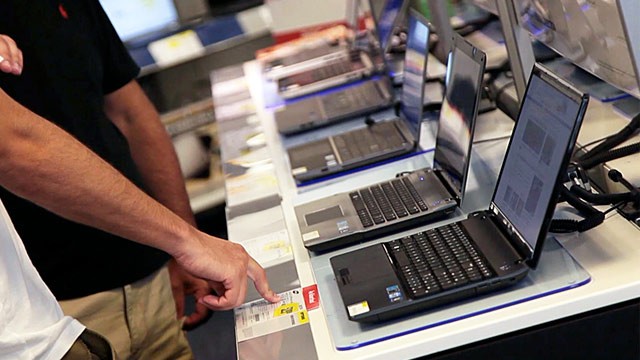What to Look for When Buying a Computer

Whether it’s your first computer or you’re thinking about upgrading, it’s important to focus on a few aspects that may help you to determine your choice. Do you want a desktop computer or a laptop, what brands are you interested in, are you looking for a budget-friendly computer, or want an expensive model? This article will highlight things to consider when buying a computer, helping you pay attention to details you might miss normally.
1- Budget plan:
Before you look around the computer market, it’s best to tailor your options based on your budget. For instance, if your allocated amount is somewhere around $750, you can’t be wasting time checking out highly expensive computers. To save time and find good value for your money, your research should focus on machines that provide excellent build quality and specs within your range.
2- Brand:
If you have already developed a liking for a certain brand, then you can consider getting a model that fits your budget from that specific manufacturer. However, when you’re on a budget, it’s best to look at all of the options that you can afford, given the possibility that you could find better specs in a computer manufactured by some other brand.
3- Machine type:
Make up your mind about whether you want to buy a desktop PC or laptop. Your needs may influence your choice. For instance, if you’re a student who needs to keep the computer around at all times, you may want to select a laptop due to its portability which will allow you to carry it freely. On the contrary, if you’re an avid gamer, then a desktop PC may prove to be more suitable.
4- CPU:
The CPU/processor is the core component of any computer. You’ll come across Intel and AMD processors in the market. The CPU determines the speed of your computer, so you may want to pay good attention to the generation chart before sealing the deal. The latest chips offer higher clock speed, a number of cores, and threads that ensure the computer operates super fast, allowing multitasking to users. You can find the comparison charts of the desktop and laptop processors on Intel and AMD’s official website.
5- RAM- Random Access Memory:
RAM is where your computer saves the temporary information that allows quick operations and smooth performance. The more RAM your computer has, the less you’d have to worry about the memory getting full. You can get RAM starting with 4GB to 128 GB or even more in computers that support a large space for RAM. However, 16 GB might be enough for regular use.
Also, more sophisticated modules are out in the market now, though expensive DDR4 and DDR5 RAM provide ultra-fast speeds; nevertheless, DDR3 would be good enough for daily use. In case you need more speed and higher memory capacity, you can buy a computer that offers both.
6- GPU- Graphics card:
The GPU/graphics card ensures the enhancement of the visual quality of the display. Especially, if you’re a gaming enthusiast, the GPU will handle all the intense graphics of a high-end game. Video editors also like to get their hands on a sophisticated GPU that delivers high-quality images. The GPU must have a VRAM of a minimum of 8GB to give suitable results. Also, the higher the clock speed, and more cores and bandwidth, the better outcome would be generated by your computer.
7- Storage:
There are two types of storage that computers offer. One of them is an HDD and the other is an SSD. The hard drive is the traditional form of storage that depends on its moving parts to read and write data. That’s why it’s slower in comparison to the solid-state drive. The SSD operates on the latest technology, so it’s fast and stores data quickly. However, the hard drive is still a good storage option. It’s pretty affordable, unlike the SSD.
8- OS- Operating System:
The operating system presents you with the interface you’ll use to interact with the computer. It manages everything from the machine hardware to the software tasks and smoothens the overall processes of the computer. A computer can’t operate without an OS, so you may select what OS you would like in your PC. The most popular ones are Windows, Linux, and macOS. Also, it’s important that the version of the OS is up-to-date. For instance, the latest computers come with either Windows 10 or Windows 11.
9- Design and Aesthetics:
Surely, good specs and build quality matter when you pick a computer; however evaluating design and aesthetics could also be important for some. The aspects concerning the color scheme and overall style depend on everyone’s personal preference. However, while choosing a computer you may also scrutinize the design and ensure if it’ll suit your comfort level. The keyboard and mouse must be user-friendly.
10- Warranty:
It’s essential to know everything about the warranty and refund policy of the manufacturers. The majority of the time there’s a warranty of at least a year. However, some components may come with a longer warranty. So, if required, you could get that specific component replaced for free or by paying a small, additional fee. Therefore, it’s best to know what warranties companies usually offer before you lock the deal.
Final Thoughts:
There are a plethora of options in the computer market today; therefore, it’s easy to get lost and confused. However, if you chalk out all aspects carefully and research thoroughly, you can surely find a computer that can fulfill your requirements.

